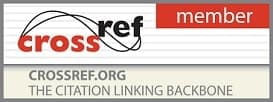Printed Journal | Refereed Journal | Peer Reviewed Journal
Nutrition education and behaviour change strategies, effectiveness, and implications for promoting healthy eating habits
Nutrition education and behaviour change strategies, effectiveness, and implications for promoting healthy eating habits
Author(s): Dr. Parul Dixit
Abstract: Nutrition education and behaviour change strategies play a pivotal role in promoting and sustaining healthy eating habits among individuals and communities. This abstract offers a concise overview of the effectiveness and implications of these strategies. Effective nutrition education programs, rooted in evidence-based practices, have the potential to empower individuals with the knowledge and skills needed to make informed dietary choices. These programs often employ diverse methods, including workshops, online resources, and one-on-one counselling, tailored to the target audience's needs and preferences. Behavior change strategies, such as goal setting, self-monitoring, and social support networks, facilitate the translation of knowledge into action. These techniques encourage individuals to adopt healthier eating habits, maintain them over time, and overcome barriers to change. The implications of successful nutrition education and behaviour change initiatives extend beyond individual health. They have broader societal benefits, including reduced healthcare costs, improved public health outcomes, and the potential to address diet-related chronic diseases. The integration of effective nutrition education and behaviour change strategies holds promise for fostering lasting healthy eating habits. To maximize their impact, these approaches must be context-specific, culturally sensitive, and continuously evaluated to adapt to evolving dietary preferences and lifestyles.
DOI: 10.33545/27077012.2023.v4.i2b.197
Pages: 127-132 | Views: 550 | Downloads: 340
Download Full Article: Click Here

How to cite this article:
Dr. Parul Dixit. Nutrition education and behaviour change strategies, effectiveness, and implications for promoting healthy eating habits. J Sports Sci Nutr 2023;4(2):127-132. DOI: 10.33545/27077012.2023.v4.i2b.197






 Other Journals
Other Journals